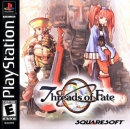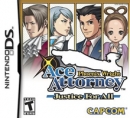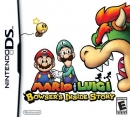Ali_16x said:
Tachikoma said:
First party exclusives, yes, third party exclusives, no, infact the exact opposite.
|
No, third party exclusives have also been around since, forever too. Explain to me how it's different for a person who wants to play a game, whether it's a 1st party or 3rd party, how would it be different? There is absolutely no reason to think a 1st party exclusive would be different from a 3rd party exclusive.
Exclusives are in almost every industry. They are hardly anti-consumer.
EDIT: Let me explain better, if a consumer wanted to buy a game, why would it matter if it was a 1st party or 3rd party? He would STILL need to buy the console to play the game. If you think 3rd party exclusives are anti consumer then you HAVE to think that 1st party titles are also anti consumer.
|
Are you attempt to imply that GTAV would still have sold just as much as it did on one platform?, third party games sell better on multiple platforms because it means people with a single console have the option to buy it.
Third party exclusives only happen for two reasons:
1) Developer/publisher does not have the manpower/money/time to develop for multiple systems.
2) A platform holder has brokered a deal to secure the exclusivity, the reason for doing so is to make their platform the only option if someone wishes to play that game, thus, limiting it's audience by force.
If a third party game goes exclusive and the sales don't do too well, it can, and has multiple times in the past, resulted in the company that made it going out of business, where as releasing the same game multi-platform requires a larger investment but a much larger return.
It's really that simple.
@edit - If a person doesnt have any console to begin with then sure, it wouldnt matter, but that's the smallest possible minority of customers, the majority of gamers already own a particular system.
And no, a platform holder / first party making a game for their system only, isn't anti-consumer, it's creating something that didn't exist, anti-consumer is taking away something that could have existed by limiting availability, or adjusting an available option to require a larger financial investment or undue action from the customer in order to purchase/use/enjoy something that would otherwise have been available without it, had a deal/arrangement not been made.
If a game was going to release on consoles X, Y and Z, and company X openes the chequebook and suddenly, the game is only for console X, customers of consoles Y and Z no longer have the ability to purchase the game and enjoy it unless they buy console X.
If a game was only going to release on console X to start with, then the customers of consoles Y and Z aren't being denied anything, as the game was never coming to their system to begin with.

















































